Empowering Stroke Patients Through Occupational Therapy
Empowering Stroke Patients through Occupational Therapy
The journey of recovery after a stroke can be complex and challenging. Those that have experienced a stroke frequently struggle with the extensive physical, cognitive, and emotional changes that alter their lives.
But, the effects of stroke can be addressed and managed with occupational therapy – a pivotal component of post-stroke rehabilitation.
How does a stroke impact an individual?
A stroke, often referred to as a cerebrovascular accident (CVA), occurs when there is a sudden interruption of blood flow to a part of the brain, either due to a blocked blood vessel caused by a blood clot (ischemic stroke) or a ruptured blood vessel resulting in bleeding into the brain (hemorrhagic stroke).
The effects of a stroke can be multifaceted, touching virtually every aspect of a person’s life. The impact varies depending on the location and severity of the stroke, and while some people make a full recovery, others may experience permanent difficulties.
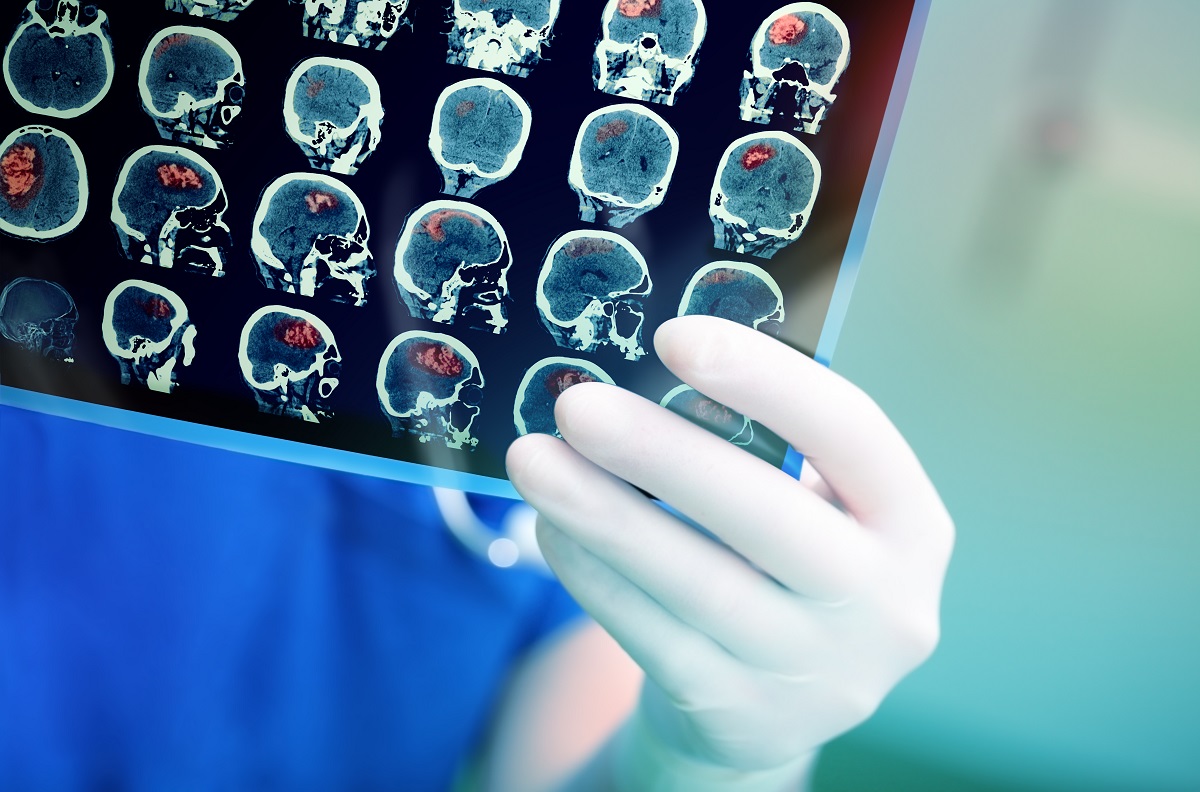
Here are some of the ways a stroke can impact individuals:
- Physical effects
- Motor Skills: Muscle weakness or paralysis, typically on one side of the body, which may affect the ability to walk, grasp objects, or perform routine activities.
- Speech and Swallowing: Difficulty speaking due to muscle weakness (dysarthria), understanding speech (aphasia), or swallowing food and liquids (dysphagia).
- Vision: Partial vision loss, double vision, or visual field deficits.
- Facial Drooping: One side of the face may droop or become numb.
- Coordination and Balance: Difficulty with balance, coordination, and proprioception, leading to a higher risk of falls and the potential need for mobility aids.
- Cognitive effects
- Memory Loss: Difficulty in forming new memories or recalling past events.
- Attention and Concentration: Challenges in maintaining attention during tasks and activities.
- Executive Functioning: Trouble with planning, organizing, and executing tasks.
- Perceptual Abilities: Difficulty in understanding spatial relationships, potentially leading to challenges like neglecting one side of the body.
- Emotional and psychological effects
- Depression and Anxiety: Experiencing feelings of sadness, frustration, or anxiety about their condition and future, in addition to grief related to a potential loss of independence.
- Mood Instability: Rapid mood changes, such as sudden bouts of crying or laughing without apparent reason.
- Personality Changes: Alterations in personality or behavior, which might strain personal relationships. This may include difficulty with impulse control which may result in negative emotions or behaviours without control, which can in turn result in safety concerns and risks.
- Post-Stroke Fatigue: A feeling of constant tiredness or lack of energy, not necessarily related to activity levels.
- Communication effects
- Aphasia: Difficulty in understanding or producing language.
- Apraxia of Speech: Challenges in motor planning for speech, making it difficult to form words correctly.
- Dysarthria: Muscular issues causing slurred or slow speech.
- Functional and lifestyle changes
- Daily Activities: Needing assistance with activities of daily living, such as bathing, dressing, and eating.
- Dependency: Increased reliance on caregivers or family members for daily tasks and support.
- Employment and Social Interaction: Challenges returning to work or engaging in social activities, potentially resulting in isolation.
- Secondary health concerns
- Recurrent Strokes: Having one stroke increases the risk of subsequent strokes.
- Muscle Atrophy and Joint Issues: Due to decreased mobility or use of certain muscles.
- Pressure injuries: From prolonged bed rest and limited mobility, people who have experienced a stroke can sustain pressure injuries which is a breakdown of the skin and underlying tissue resulting from prolonged pressure on the skin, which can cause secondary infections.
Understanding the broad range of potential impacts emphasises the importance of comprehensive care for those that have experienced a stroke, encompassing medical, rehabilitative, and supportive interventions.
With timely and appropriate treatment and rehabilitation, many of these individuals can regain independence and improve their quality of life.
Understanding occupational therapy
Occupational therapy for individuals that have experienced a stroke focuses on facilitating a return to daily activities and regaining independence. It is not merely about physical rehabilitation, but addresses the holistic wellbeing of the individual.
Whether relearning to tie shoelaces or rebuilding cognitive function, occupational therapy offers an actionable management and rehabilitation plan in the complexity of post-stroke recovery.
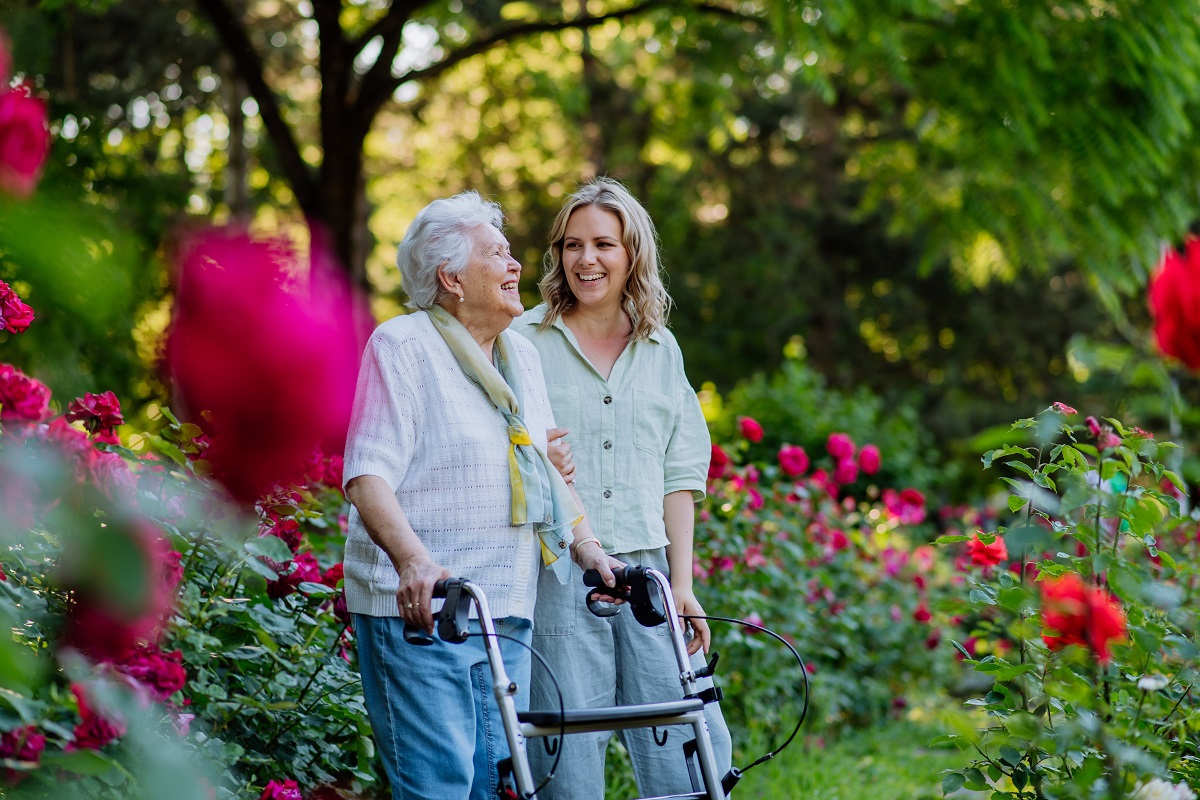
Tailoring occupational therapy to individual needs
Every instance of stroke is unique; and so is every recovery journey. At St Jude’s, we deeply acknowledge this, crafting personalised occupational therapy programs for clients who have experienced a stroke.
By addressing specific challenges faced by each individual, our therapies aren’t generic but are tailored, ensuring effective and targeted recovery.
Improving daily living activities
The simple joys of life – dressing oneself, enjoying a meal, or taking a bath independently – can turn daunting after a stroke. Occupational therapy focuses on adapting or relearning these essential activities, allowing people to regain dignity and independence.

Enhancing mobility and motor skills
Post-stroke, mobility and fine motor skills often take a hit. Occupational therapists employ a range of techniques, from muscle-strengthening exercises to coordination tasks, ensuring individuals reclaim their mobility and precision. This focuses on not only exercises, but applying these skills in daily activities, such as regaining the ability to use pegs to hang out washing, or cutting ingredients as part of meal preparation.
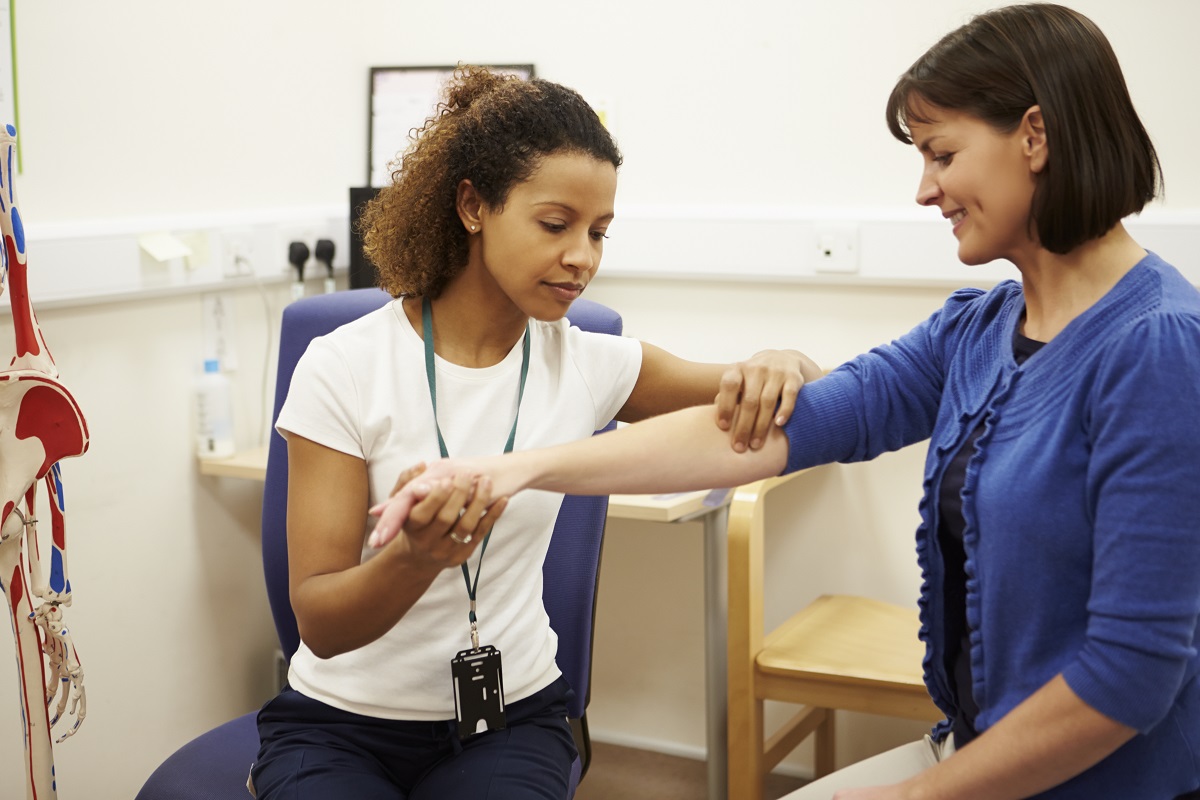
Cognitive rehabilitation
Beyond the physical realm, strokes often challenge cognitive functions. Occupational therapy steps in here, offering tools and exercises to boost memory, sharpen attention, and refine problem-solving abilities, supporting better mental agility.
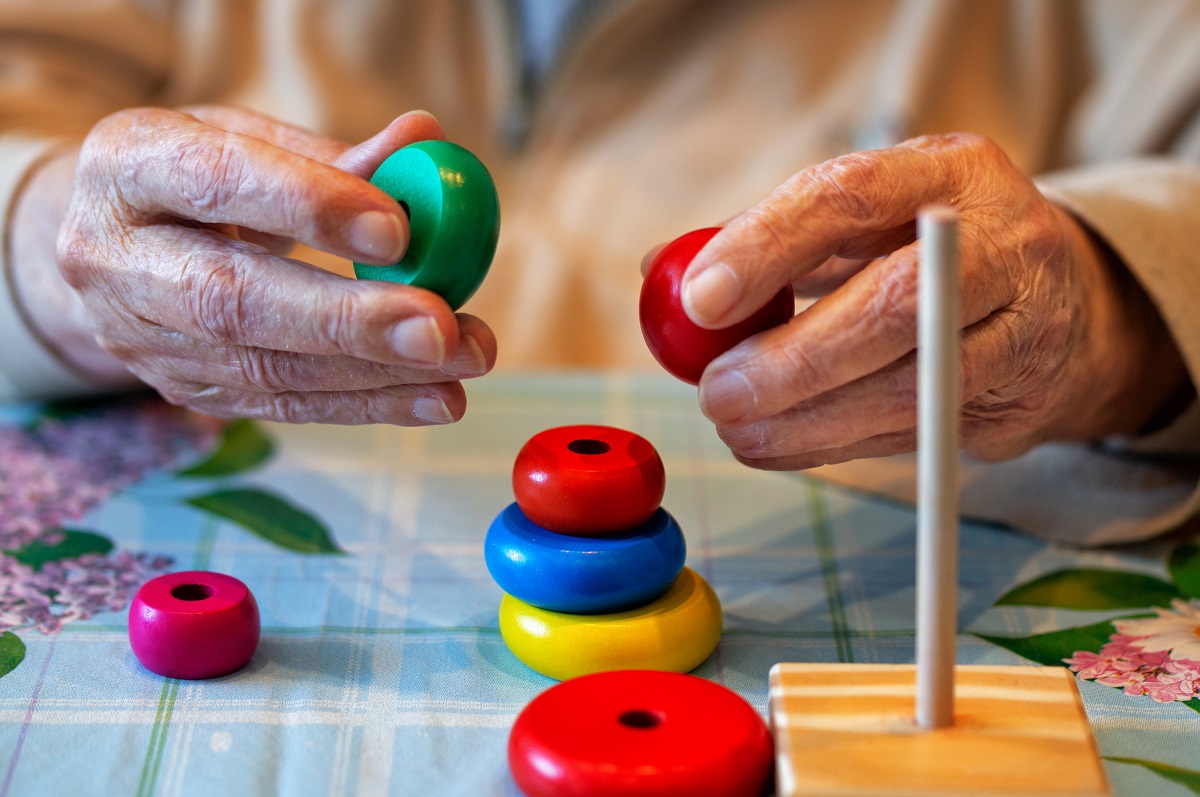
Emotional support and mental wellbeing
The emotional aftermath of a stroke can be as overwhelming as its physical impacts. Recognising this, occupational therapy also carves pathways to improved mental well-being, ensuring patients rebuild not just their bodies, but their emotional regulation skills.
Assistive technology and adaptations
Sometimes, recovery involves the use of assistive technologies. Occupational therapists often recommend assistive technology or home modification that act as enablers. Whether it’s adapted cutlery for eating, a modified doorknob for easy access or a level bathroom for a wheelchair user to be able to shower safely, these adaptations ensure daily life post-stroke is more manageable.
Community participation
Life after a stroke isn’t confined to the home. Occupational therapy places a keen emphasis on reintegrating people who have experienced strokes into their communities, paving the way for social activities, gatherings, and community engagements. This may include but is not limited to developing their capacity in utilising public transport and navigating within the community, and completing grocery shopping with the implementation of strategies to manage deficits and difficulties.c
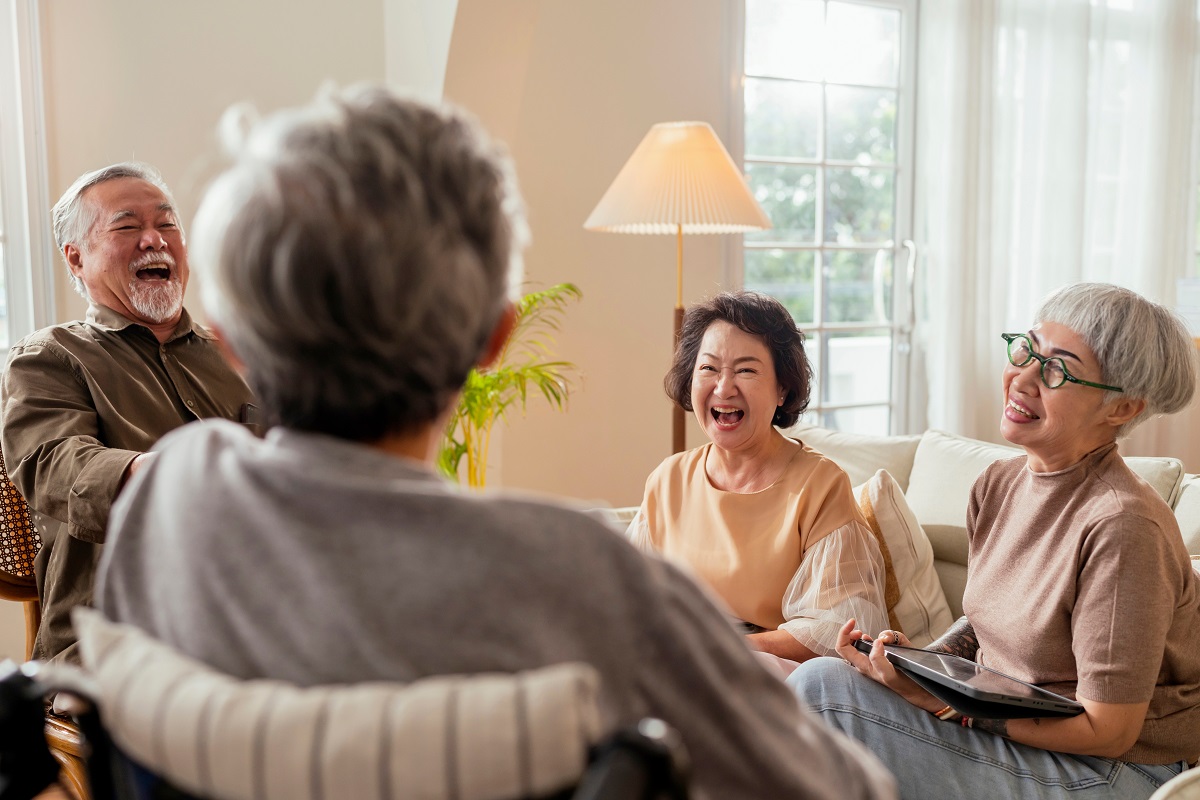
Collaboration with support network
The road to recovery isn’t solitary. St Jude’s occupational therapists believe in the power of community, working hand-in-hand with families, friends, caregivers, and support networks. This collaborative approach ensures holistic comprehensive care, drawing on collective strength and support.
NDIS funding for occupational therapy
For many, the path to stroke recovery is also fraught with financial uncertainties. This is where having an NDIS plan is incredibly valuable, as it offers funding for occupational therapy services at St Jude’s.
By understanding the eligibility criteria and application process, people that have experienced a stroke that has resulted in a reduction in independence and functional decline can access our therapy services without the burden of financial strain.
Reclaiming life after stroke with St Jude’s
At St Jude’s, we’ve seen first hand the remarkable impact of occupational therapy for stroke recovery.
St Jude’s stands committed to ensuring every individual who has experienced a stroke reclaims their life, one step at a time. To see if you are eligible for our exceptional NDIS occupational therapy services, get in touch with our friendly team.